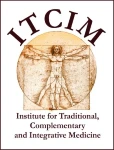
Lesia Shuranova Ph.D., MBA - Czech Republic
Abstract of the presentation
The Road to Better Care for Stroke Patients
Branch: Other
The study analyzed the issue of family support and care for patients requiring long-term rehabilitation, particularly in the context of stroke. The main areas examined were the emotional and physical burden on caregivers, uncoordinated care, and shortcomings in the integration of healthcare and social services. The study identified key barriers to effective rehabilitation and proposed ways to overcome them.
The research emphasized the importance of family support during patient recovery, showing that caregivers were exposed to a high burden. This led to burnout and a decline in the quality of care provided. Insufficient coordination between healthcare facilities and social services was identified as another significant problem. Multidisciplinary approaches were often inadequately implemented, slowing down the rehabilitation process and limiting patients’ return to a full life. The study also examined innovations in rehabilitation technologies, such as robot-assisted therapies and telemedicine, which improved patient outcomes and reduced caregiver burden.
The findings suggested that greater emphasis on caregiver education, the implementation of technological innovations, and interdisciplinary coordination could significantly improve system efficiency. In conclusion, the implementation of a comprehensive care model involving multidisciplinary collaboration, caregiver support, and the use of modern technologies was recommended. This model could improve patient health outcomes, reduce the burden on families, and lower healthcare costs.
Funding for this study was provided by the Grant Agency of the University of South Bohemia (project no. GAJU 066/2022/S, duration 1 February 2022 – 31 December 2023). The author declares no conflicts of interest.
Please note that some of the texts also include machine-generated translations.





